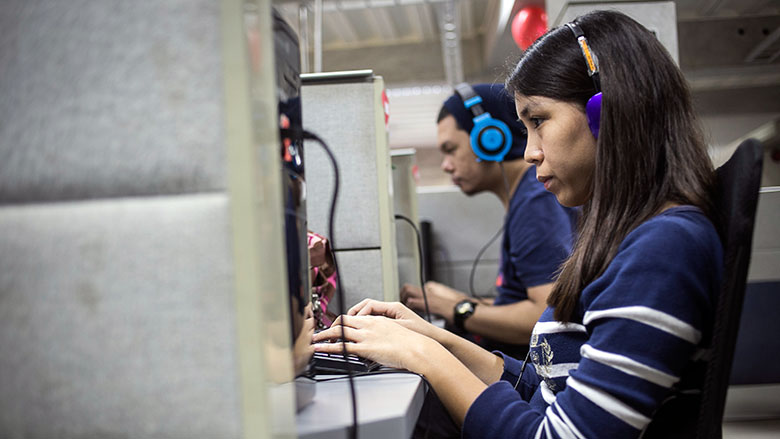- Although the Philippines has achieved remarkable progress in raising the education level of its labor force, the standard proxy for educational attainment—years of formal schooling—is increasingly inadequate as a measure of workforce skills.
- About one-third of employers’ report being unable to fill vacancies because of a lack of applicants with requisite skills. Most of these missing skills are not forms of academic knowledge or technical acumen but rather socioemotional skills, also known as “noncognitive skills,” “soft skills,” or “behavioral skills.”
- Emerging international evidence suggests that socioemotional skills are increasingly crucial to the types of jobs being created by the global economy. Whereas in the past, literacy, numeracy, and various forms of administrative and technical know-how drove gains in worker productivity, structural economic transformation is creating a burgeoning demand for jobs that require skills related to individual behavior, personality, attitude, and mindset.
- However, governments and educational institutions in many countries, including the Philippines, are only beginning to fully recognize the importance of socioemotional skills and to develop strategies to foster their development.
Findings
- This study presents new evidence from employer and household surveys on the role of socioemotional skills—as well as more traditional cognitive and technical skills—in the Philippine labor market. The analysis reveals the following:
- The number of Philippine firms that report inadequate workforce skills rose by 30 percent in the past six years alone. Two-thirds of employers report difficulty finding workers with an adequate work ethic or appropriate interpersonal and communications skills.
- Because the education and vocational training sector has been slow to meet the demand for socioemotional skills development, the proportion of firms that provide worker training has doubled over the past six years, and firm based training increasingly focuses on socioemotional skills.
- In the Philippines, more-educated and employed workers tend to score higher on measures of grit, decision making, agreeableness, and extraversion.
- One standard deviation in socioemotional skills is associated with a 9 percent increase in average daily earnings (approximately US$2). Socioemotional skills are associated with especially large income increases for women, young workers, less-educated workers, and those employed in the service sector.
- Higher levels of socioemotional skills are also correlated with a greater probability of being employed, having completed secondary education, and pursuing tertiary education.
Recommendations:
- The Philippines is still at an early stage in terms of its ability to measure and develop socioemotional skills. Studies suggest that primary school is the optimal time for shaping socioemotional skills, but the elementary education curriculum devotes limited resources to their development. Schools continue to be judged solely by students’ performance on cognitive achievement tests rather than on soft-skills competencies, and teachers are not appropriately trained to foster the development of those competencies. Developing those should be a priority.
- Interventions targeting workers entering the labor force can also effectively bolster their socioemotional skills, as well as complementing efforts to improve labor market information and vocational counseling.

